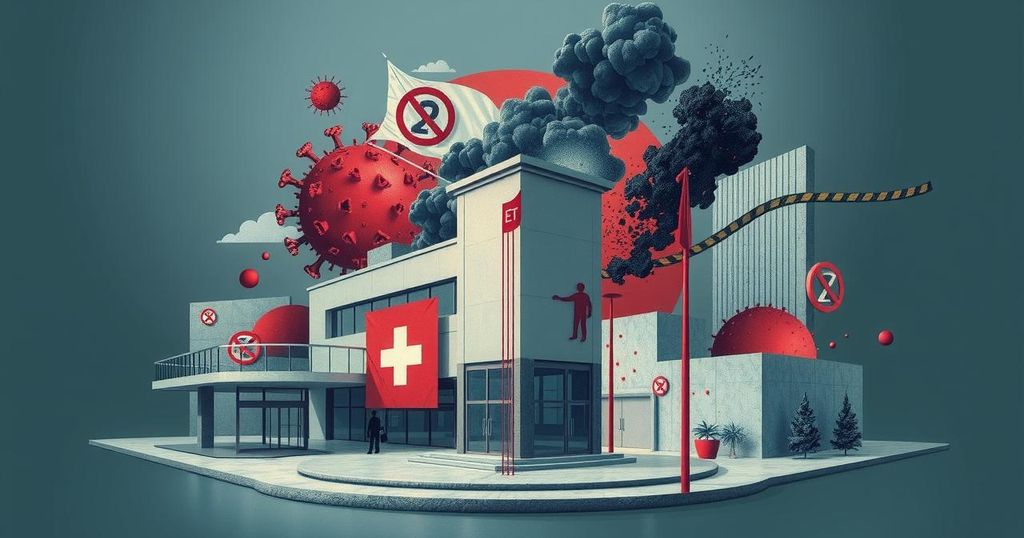World news
AFRICA, ASIA, BE, CLIMATE CHANGE, COLOMBIA, COVID-19 PANDEMIC, CUBA, DESMOND TUTU HIV CENTER, DONALD TRUMP, GAIL BEKKER, JAPAN, LINDA -, LINDA - GAIL BEKKER, NATURAL DISASTERS, NORTH AMERICA, PEP, PUBLIC HEALTH, SOUTH AFRICA, SOUTH AMERICA, TRUMP, TU, UNAIDS, UNITED STATES, US, USA, USAID, WASHINGTON, WHO, WORLD NEWS, ZIMBABWE
David O'Sullivan
0 Comments
Impact of U.S. Funding Cuts on African HIV/AIDS Programs Crisis
U.S. funding cuts to HIV/AIDS programs have raised alarms about potential increases in deaths, particularly in South Africa, where experts warn of 500,000 fatalities over the next decade. Significant disruptions to healthcare services, including treatment and prevention initiatives, have already occurred. Responses at national levels are emerging, but the ongoing need for funding and support from the international community is pressing.
The cessation of United States funding for HIV/AIDS programs in African countries has raised significant concerns among health experts and aid organizations. In South Africa alone, the anticipated impact of such cuts could lead to approximately 500,000 deaths over the next decade. The Desmond Tutu HIV Center has emphasized the dire consequences of these funding halts, including the disruption of essential health services such as prevention, testing, and treatment programs.
Following President Donald Trump’s inauguration, drastic reductions to foreign aid were implemented, including a 90 percent cut to US Agency for International Development (USAID) contracts. Subsequently, funding was eliminated for UNAIDS, the United Nations program dedicated to assisting communities affected by HIV/AIDS. The UNAIDS report indicated that 55 countries have experienced reductions in HIV program funding, with significant effects felt particularly throughout Africa.
With an estimated 25 million people living with HIV in sub-Saharan Africa, the region bears a substantial burden of the epidemic. The PEPFAR initiative, which has operated since 2003, is credited with saving 26 million lives through considerable financial support, amounting to around $120 billion. However, recent cuts have led to reduced healthcare access, resulting in a troubling outlook for millions in need.
Reports highlight that numerous HIV treatment clinics in South Africa have closed, negatively impacting nearly 222,000 individuals reliant on antiretroviral therapy. Across Ivory Coast, 516 health facilities have shut, affecting 85 percent of HIV patients treated. Other nations, including Mozambique and Tanzania, have reported similar challenges in service continuity due to funding reductions, with numerous community health workers being laid off or unable to perform their roles.
In response to these alarming circumstances, South Africa has pledged to enhance its healthcare systems and provide alternative solutions. Government initiatives aim to recruit individuals living with HIV who are not currently in treatment into healthcare programs. Additionally, Nigeria has allocated funds to address immediate treatment gaps, signaling a proactive approach amidst the crisis.
Experts suggest that while the funding gap from USAID is significant, organizations such as UNAIDS may serve as a potential resource to maintain service delivery in affected countries. Cooperation with European nations and private sectors, such as the Bill and Melinda Gates Foundation, could also reinforce the existing health initiatives, though uncertainty remains around the commitment of such organizations. With the urgent need for funding, the international community is called upon to step up and support African HIV/AIDS programs effectively.
The cuts to U.S. funding for HIV/AIDS programs pose a grave threat to millions in Africa, with predictions of skyrocketing infection rates and deaths. Responses from affected nations will be critical to mitigate the impact on healthcare services. International cooperation and alternative funding are vital to address the urgent needs exposed by these cuts. Overall, the situation reflects the ongoing struggle against HIV/AIDS, especially in sub-Saharan Africa.
Original Source: www.aljazeera.com




Post Comment